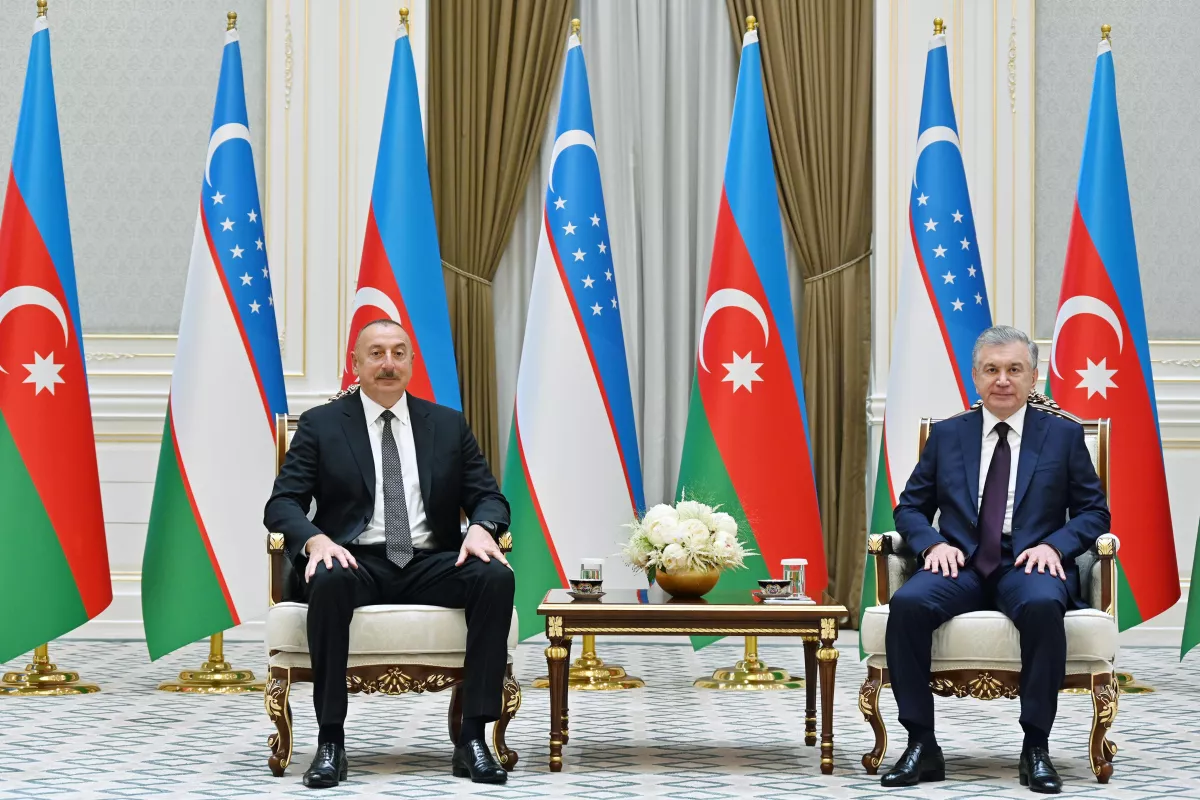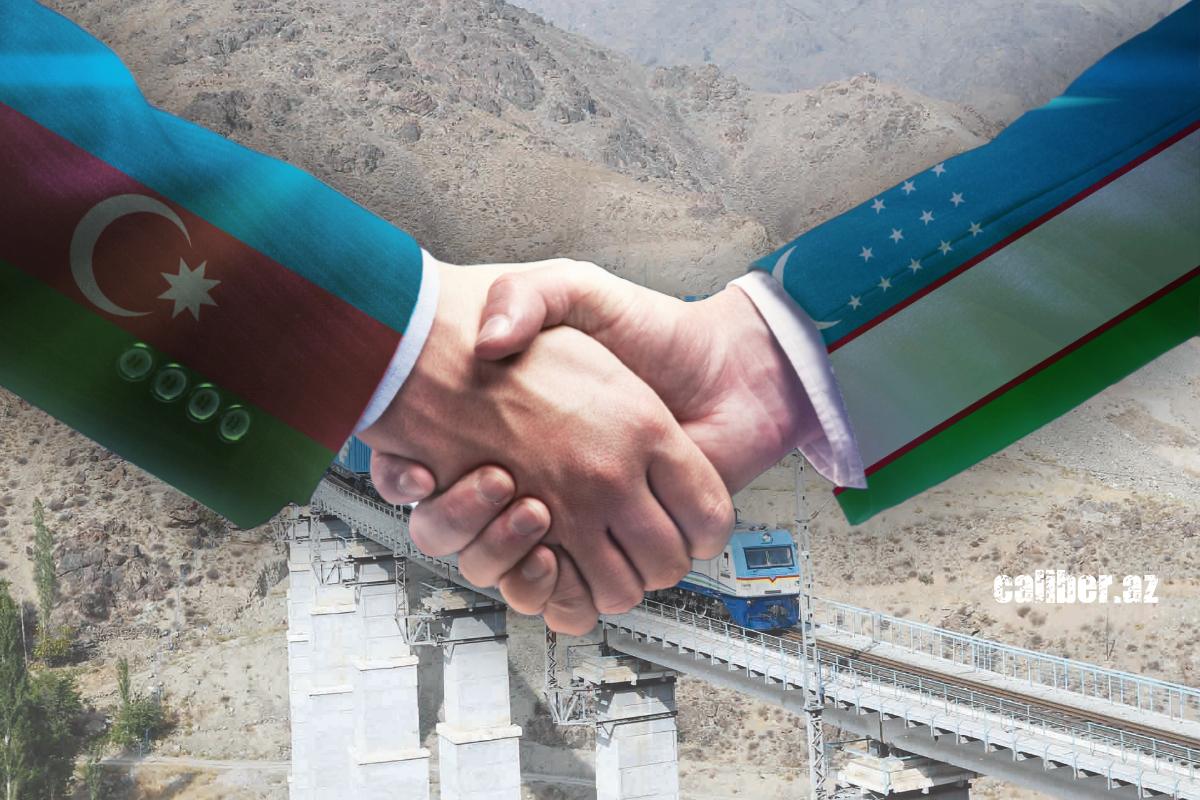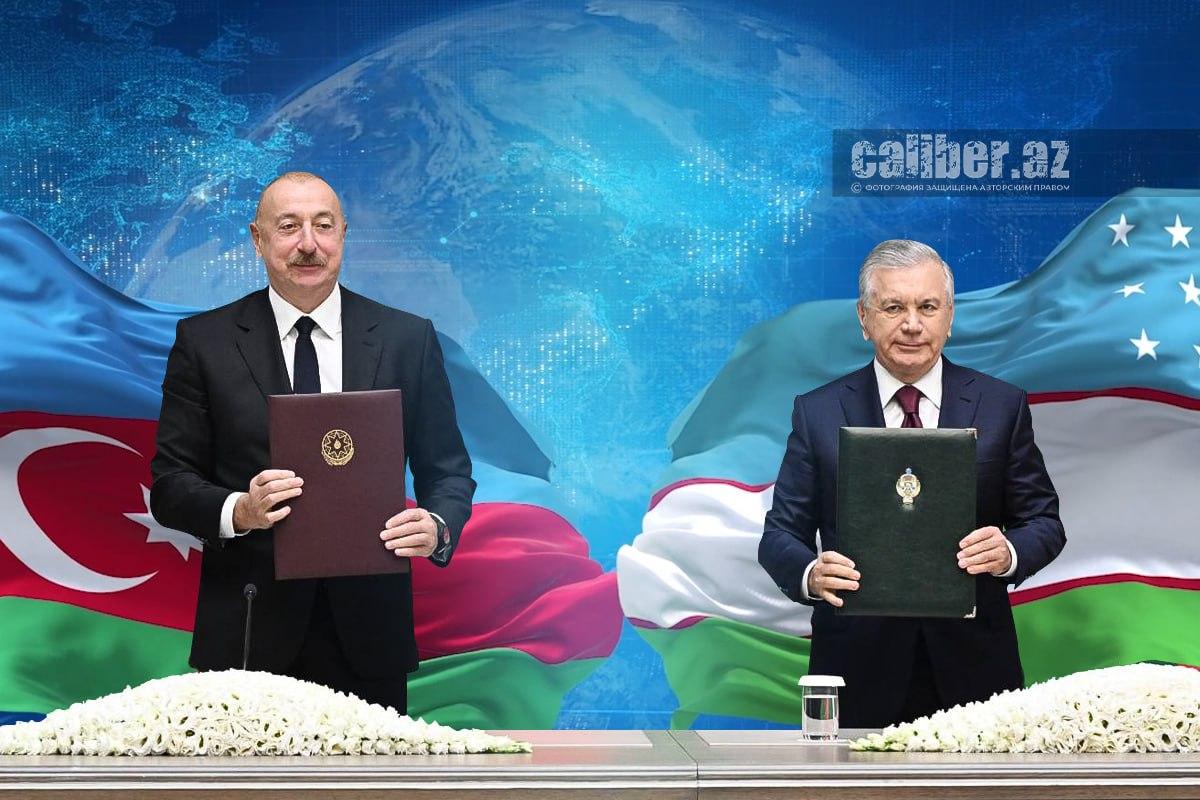“Azerbaijan and Uzbekistan aim to minimise geopolitical risks” Expert discusses strategic partnership and regional integration
As Azerbaijan and Uzbekistan celebrate 30 years of diplomatic relations, their partnership stands out for its strategic depth, economic dynamism, and shared vision for regional integration. In an exclusive interview with Caliber.Az, Dr. Ranokhon Tursunova, Professor of Political Science at the University of World Economy and Diplomacy in Tashkent, explores the unique characteristics of bilateral ties, ongoing cooperation in energy, transport, and logistics, and the forward-looking initiatives shaping the future of the Azerbaijan-Uzbekistan partnership.

— This year, Azerbaijan and Uzbekistan mark an important milestone: the 30th anniversary of establishing diplomatic relations. The heads of the two states exchanged congratulations, noting the special character of their bilateral ties. In particular, President Ilham Aliyev highlighted in his message: “Although our diplomatic relations span a history of thirty years, the traditions of unity, solidarity, mutual respect, and support between our brotherly peoples have been passed down from century to century and generation to generation.” In your view, what is the specificity and uniqueness of relations between Baku and Tashkent, and how do they differ from Azerbaijan’s relations with other Central Asian countries?
— I would say that Azerbaijani-Uzbek relations in recent years have demonstrated a distinctive dynamism, setting them apart from Azerbaijan’s interaction with other Central Asian states. Let me highlight some key features and the uniqueness of these friendly ties.
First, Azerbaijan and Uzbekistan are both secular states with pragmatic foreign policies, pursuing a multi-vector approach that avoids direct dependence on a single centre of power. Both countries share similar views on sovereignty, territorial integrity, and non-interference, which align their positions in international organisations such as the Organisation of Islamic Cooperation (OIC), the UN, and others. Moreover, Tashkent and Baku play proactive roles in the Organisation of Turkic States, where they advance the idea of the Turkic world.
Second, the two countries are actively strengthening economic ties, particularly in the transport and energy sectors, as reflected in the pace of ongoing projects. In other words, economic relations are developing faster than with other countries in the region. For example, Uzbekistan shows significant interest in transit through Azerbaijan — namely, the Trans-Caspian Route / Middle Corridor. Today, the Republic of Azerbaijan serves as a key part of the energy and logistics architecture that allows Uzbekistan to access European markets.
In addition, both states are actively investing in each other’s infrastructure projects. For instance, Tashkent invests in the Karabakh region, while Azerbaijan contributes to Uzbekistan’s logistics sector, with Uzbekistan also taking interest in SOCAR’s expertise in the oil and gas industry.
Third, it is worth noting the regular mutual visits by the leaders of the two countries, as well as the fact that Baku and Tashkent consistently emphasise their shared Turkic identity.

In the context of relations with other Central Asian countries, it is worth noting that Kazakhstan is also important for Azerbaijan, but relations with Uzbekistan are distinguished by a higher level of political trust. Meanwhile, Kyrgyzstan and Tajikistan have less weight in regional logistics and the economy and are not as actively involved in Turkic integration projects. Turkmenistan remains traditionally isolated, although it participates in energy and logistics initiatives.
Thus, the relationship between Baku and Tashkent stands out for its high degree of strategic partnership, based on converging interests in security, logistics, energy, and cultural identity. Unlike Azerbaijan’s more formal or limited relations with other regional countries, this partnership exhibits real synergy, reinforced by political, economic, and geostrategic cooperation.
— What have been the key areas defining the direction of Azerbaijan-Uzbekistan cooperation in 2024–2025, and what are their strategies and advantages?
— Cooperation between Azerbaijan and Uzbekistan in 2024–2025 has been diverse and fruitful. In the energy sector, for instance, the Uzbek side and SOCAR signed a Production Sharing Agreement (PSA) providing for geological exploration and subsequent hydrocarbon production in the Ustyurt region. Additionally, a cooperation roadmap for 2023–2025 was prepared, covering exploration, production, joint ventures, experience-sharing in energy efficiency, electricity supply, and sectoral reforms.
In the field of transport, logistics, and transit, Baku and Tashkent have agreed on joint production of ferries for Uzbekistan with financing of $150 million. Discussions are ongoing on establishing warehouse infrastructure and a joint venture for transit along the Trans-Caspian route. New transit routes through Azerbaijan are actively being developed to diversify Uzbekistan’s transport links toward Europe. At the same time, Uzbekistan, Azerbaijan, and Turkmenistan have agreed to develop transport corridors, ports, logistics, and maritime shipping across the Caspian Sea.
In the sphere of investment and industrial cooperation, issues regarding joint ventures, technological experience exchange, and participation of Azerbaijani companies in Uzbekistan’s energy and infrastructure sectors have been elaborated.

Significant progress is also being made in the highly demanded field of green and renewable energy. Azerbaijan, Uzbekistan, and Kazakhstan have signed a strategic partnership agreement on the development and transfer of green energy. Uzbekistan plans to substantially increase the share of green energy in its energy balance, which involves the construction of wind, solar, and hydroelectric power plants, as well as energy storage facilities.
In the strategies of the two countries regarding mutual cooperation, several key directions can be highlighted. It is evident that both states aim to minimise geopolitical risks related to transit and energy, particularly within the framework of the Middle Corridor, increase export revenues—especially from renewable energy sources—leverage the advantages of the environmental agenda, and capitalise on Europe’s growing interest in green energy. This also includes the development of logistics and infrastructure to reduce the time and costs of moving goods to and from Uzbekistan, thereby decreasing dependence on longer routes or those passing through unstable regions.
Another aspect of the cooperation vectors is that Azerbaijan and Uzbekistan are focused on creating joint ventures, which allows for technology exchange, development of local industry, and the creation of new jobs.
— Which sectors of the two countries’ economies, in your view, have the greatest potential for development and can serve as a foundation for future joint initiatives and large-scale projects?
— Both Azerbaijan and Uzbekistan have strong grounds to deepen their cooperation across various sectors further, as their partnership is built on mutual benefits and relies on a range of advantages, including geographic location. For example, Azerbaijan serves as a bridge to Georgia, Türkiye, and further to Europe, while Uzbekistan is a large domestic market, a regional hub, and possesses significant energy and transport-logistics potential in Central Asia.
Moreover, Uzbekistan is rich in renewable energy resources, while Azerbaijan has extensive experience in implementing large-scale energy and transit projects, such as the Southern Gas Corridor and the Trans-Caspian route. Most importantly, the leaders of both countries actively promote initiatives, sign agreements, and develop roadmaps.

Thus, it can be concluded that in the coming years, cooperation between the two countries will be dynamic and focused on implementing major infrastructure and energy projects, with an emphasis on sustainability, strengthening transport and energy independence, and accessing external markets.








